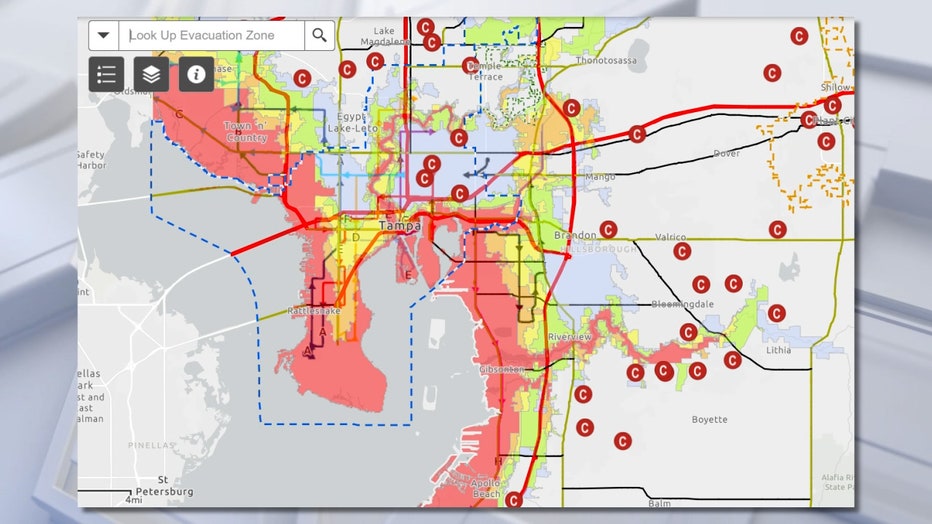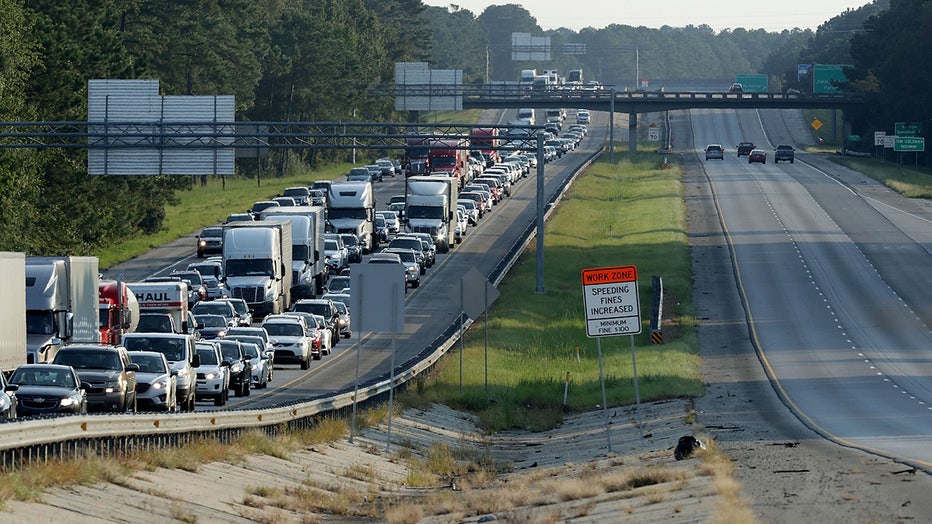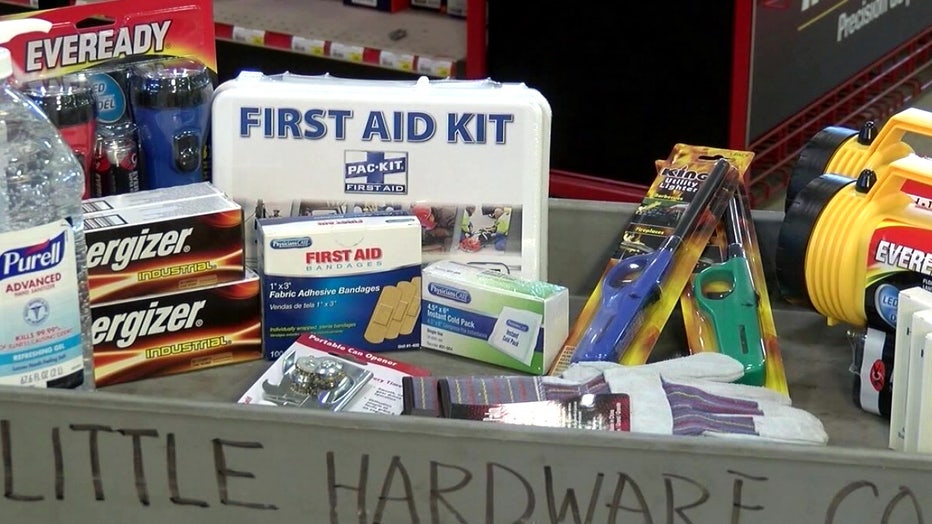How to prepare for a hurricane
Hurricane season in the Atlantic Ocean runs from June 1 to Nov. 30. In the Pacific Ocean, it starts May 15.
Preparing for a hurricane or tropical storm and gathering your resources before one hits is critical to ensuring your safety and protecting your property.
Here is a hurricane preparedness list and some tips to help you get ready for hurricane season.
Determine the risk to your area

Sample hurricane evacuation zone map for the Tampa, Florida area. All coastal communicates have similar maps.
First things first, determine what type of risks you face in the event of a landfalling hurricane or tropical storm.
The wind is the first thing that comes to mind for most when they think about hurricanes, and rightly so. These storms can produce some terribly damaging wind. However, one of the biggest threats from any tropical system is flooding. That flooding can come in two forms — storm surge along the coast or inland flooding from heavy rain. Tropical systems can also produce tornadoes as they come ashore and rip currents along beaches.
With that list in mind, determine what types of problems you might face during a hurricane or tropical storm. In most cases, it will be more than one or maybe even all of them. Knowing this helps you develop a hurricane preparation plan.
Create a hurricane evacuation plan

File: Southbound lanes of I-95 near the Georgia-South Carolina border are empty as northbound lanes are packed as people evacuate ahead of the arrival of Hurricane Irma September 8, 2017 in Savannah, Georgia. (Photo by Chip Somodevilla/Getty Images)
If you live in a coastal region, you’re most likely in some type of evacuation zone. Before a hurricane or tropical storm hits, you should determine whether you live in an evacuation zone. Some places handle evacuations by ZIP codes, while others handle it in predetermined zones. Your local or state emergency management office has maps available to help you determine whether you live in an evacuation zone.
Once you figure out your evacuation zone, start figuring out where you would go for shelter. Maybe it’s a relative who lives outside the area. Maybe it’s a hotel in a safe place. Maybe it’s a hurricane shelter opened by local officials.
HOW TO WATCH FOX WEATHER ON YOUR TV
Follow all the evacuation instructions that you’re being given by local officials. Most evacuees will be required to use a specific evacuation route to get out of town. Familiarize yourself with the route. Don’t get on the roads unless you’re told to do so. Unnecessary traffic slows down the evacuation process.
Don’t forget about your pets when developing your evacuation plan. Shelters and hotels may not allow animals. Pet hotels in the area may not be open in the event of a storm.
One last thing, make sure you bring important documents such as insurance paperwork with you.
Assemble your hurricane supply kit

You’ll need to assemble emergency supplies that you can use during and after a hurricane before one is bearing down on your area. People will flock to stores upon word of an approaching storm, so getting those supplies ahead of the rush will save you critical time and a lot of stress.
Here are some things the National Weather Service says you should include in your kit:
- Enough non-perishable food, water and medicine to last each person in your family a minimum of three days.
- Extra cash.
- A battery-powered radio.
- Flashlights.
- A portable crank or solar-powered USB charger for your cell phones.
The Federal Emergency Management Agency also has a list of emergency items you should include.
Check your insurance policy's hurricane coverage
The last thing you want to deal with during and after a storm is the insurance company. Give your agent a call now and make sure that your coverage is adequate to cover the risks that you may face during a hurricane or tropical storm.
PROPERTY SUSTAIN HURRICANE DAMAGE? HERE'S WHAT YOU SHOULD DO
It’s worth noting that standard home insurance policies do not cover flooding from a storm. If your area is prone to flooding, you should consider getting flood insurance. There’s a 30-day waiting period for most flood insurance policies, so sooner is better. You can get more information about the National Flood Insurance Program at floodsmart.gov.
Prepare your home for a hurricane

File: Lindsay Rogerson takes his share of plywood after waiting in line 6 hours in preparation for Hurricane Frances at a Home Depot on September 1, 2004 in West Palm Beach, Florida. (Photo by Jeffrey Langlois/Getty Images)
Before a storm hits, prepare your home for the storm.
Install storm shutters that will be helpful in providing protection from the wind for your windows and doors. According to the National Weather Service, a garage door is the most vulnerable part of a home. Make sure it can stand up to the wind.
Trim trees to prevent branches from falling into your house. Also, secure any loose items like patio furniture or garbage cans so that they don’t become projectiles during the storm.
LINK: GET UPDATES ON THIS STORY AND TROPICAL WEATHER AT FOXWEATHER.COM

